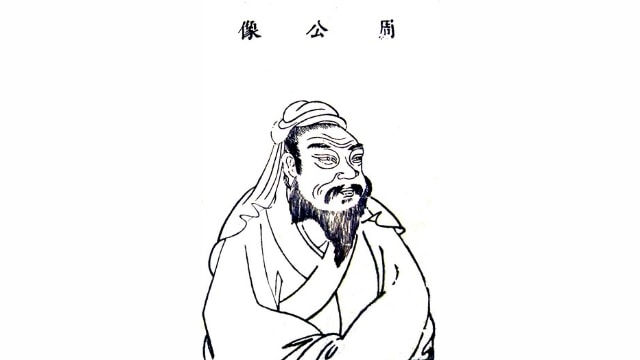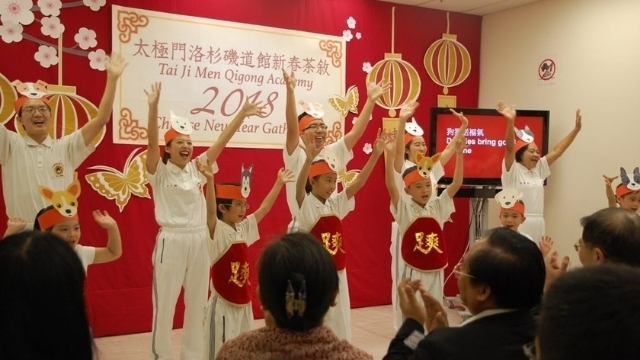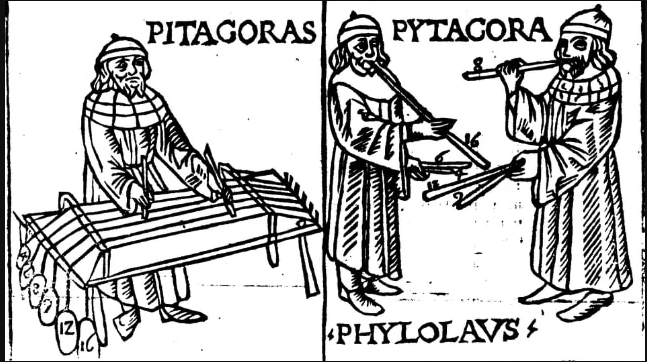A music teacher with extensive academic experience reflects on what music has to do with global education and human rights.
by Susan Wang-Selfridge *

*This article is based on a presentation at the conference “Education and the Challenges of the Multicultural World: An Interdisciplinary Perspective,” organized at the Maria Grzegorzewska University, Warsaw, Poland on January 21-22, 2021 by the UNESCO/Janusz Korczak Chair in Social Pedagogy.
I have a Ph.D. in music, and extensive teaching experience in this field including at the University of California, Los Angeles. Music is the essence of culture, and the first music every child hears is the mother’s heartbeat. The rhythmic beat conveys love and security, creating an association that lasts a lifetime. Pythagoras believed that music was inseparable from numbers, and considered it to be the key to both the spiritual and physical universe. He viewed music as a system of pitch and rhythm ruled by the same mathematical laws that operate the entire visible and invisible world. Plato and others insisted that music possessed moral qualities and could affect character and behavior. Predating the philosophical achievements of the classical Greek period, the Zhou Dynasty (1046 to 256 BC) flourished as a foundational civilization in China, and Regent Zhou Gong formulated a complete set of moral codes for the people to follow, based on both Li (virtuous conduct and the rituals to go with it) and Yue (music).

While we are all born equal, many societies create socio-economic caste systems that generate artificial barriers to achievement. While I was teaching at the University of California, Los Angeles, I encountered students from diverse backgrounds, and with diverse levels of achievement. The primary division between two categories of students was the training opportunities they had received prior to entering the university, which more often than not matched the socio-economic environment they came from. Music is often neglected, when the primary focus of education is integrating students into the workforce as quickly as possible.
As I continued my journey serving in various socio-economic communities, collaborating with non-profit organizations opened my horizons of what higher-purpose education could bring about. This motivated me to seek additional opportunities to engage in arts-based exchanges that would focus on personal growth and international cultural exchanges for altruistic motivations. This journey brought me into my first contact with Tai Ji Men Qigong Academy.
Tai Ji Men Qigong Academy emphasizes promoting physical, mental and spiritual wellbeing through qigong martial arts practices, and self-cultivation. For more than two decades, its leader Dr. Hong Tao-tze has led members of Tai Ji Men to foster peace around the world and they have self-funded their trips to more than 100 countries and conducted cultural exchanges. During an exchange about promoting a culture of peace with love and conscience in the United Nations in 2018, Ambassador Teburoro Tito from Kiribati honorifically referred to Dr. Hong as a modern-day Confucius. These exchanges include music and dance performances, which are believed to be based on conscience and self-cultivation, and to be an integral part of the efforts to create peace and harmony between cultures, religions, and spiritual movements based on conscience.

Over my 15 years of participation with this respectable organization, seeing all the good work they have done internationally, I have witnessed how their international peace building efforts through cultural exchanges, music, dance, and artistic performances has been significantly hindered by the Taiwan government, all while the organization has received repeated accolades from politicians, including multiple presidents, as well as having been invited by the government ten times to participate in Taiwan’s National Day performance.
The injustice stems from the corruption in a national tax agency. Incentivized by bonuses for collecting taxes, tax officials often bill taxpayers arbitrarily without actually investigating the nature of their income. In 1997, the Taiwan National Taxation Bureau wrongfully accused Dr. Hong and his wife of tax evasion without any substantial investigation. It falsely claimed that Tai Ji Men dizi’s (disciples) gift to their shifu (master), Dr. Hong, were tuition fees for a cram school when in fact they were a token of respect and gratitude for Dr. Hong’s spiritual teachings. Dr. Hong and Tai Ji Men challenged the accusations, taking the tax bureau to court, and secured numerous court orders. However, despite the rulings in favor of Dr. Hong, the tax bureau reissued new unjustified tax bills, and the litigation cycle began anew. This cycle has been repeating itself for the past 25 years, forcing Tai Ji Men to redirect incalculable hours and financial resources from global cultural education to fighting this never-ending injustice. In August of 2020, the tax bureau ignored the criminal court’s ruling that determined Tai Ji Men did not owe taxes, and illegally auctioned the land intended to be the building site for a self-cultivation center for Tai Ji Men. As professor Lien Fu-lung from Osnabrück University, passionately uttered in the new book Who Stole Their Youth, “The State stole twenty-four prime years from Tai Ji Men members. The State’s confiscation of the people’s property in the name of the law is an act of a licensed robber. However, it cannot steal the eternal Tao of Tai Ji in the hearts of the people.”

The purpose of a government is to protect its people and to provide law, order and effective remedies; at the same time, providing economic opportunities and public services to ensure people’s well-being and happiness. It is crucial for the governmental officials to set conscientious examples when they exercise the power that was entrusted by the people. When a public servant makes mistakes, the government should take action to hold the public servant accountable, while taking proactive remedies. This is of imperative importance.
During the 73rd session of the UN General Assembly, the United Nations adopted a draft resolution and declared April 5th as the International Day of Conscience. Thanks to the efforts of Dr. Hong, a resourceful International Conscience Day website provides a wealth of practical tools for world citizens of all ages to inspire and to be inspired with daily conscientious endeavors. Thanks to the advancement of technology and also due to the challenge of the COVID-19 pandemic, a virtual platform such as ICDAY.org is acting as a positive energy hub, gathering concrete good-doer stories and events, and producing conscience-based programs then spreading in the boundary-less internet world with an aim to promote conscience-driven education not only in educational institutions but in every family, enterprises, non-governmental and governmental organizations and the entire fabric of the human society.

Dr. Hong also encouraged Tai Ji Men members from all walks of life to follow the guidance of conscience and put it into practice with positive energy in everyday endeavors. One example is professor Chia-Jung Lin, who drew upon the inspiration of the Movement of An Era of Conscience and integrated a program of character development into the citizenship curriculums of elementary schools in Taiwan and the United States. Through the process of internalization and self-reflection, the students have improved in their character and attitudes and behaviors. Not only did she win the best research paper award in Taiwan, but her research is also listed on the website of the State of California, Santa Clara County Office of Education.
Not only music, but also other artistic and cultural traditions can bring out the best in people, giving them opportunities to grow and to become the best versions of themselves. One of the most beloved and greatest composers of all time, Ludwig van Beethoven, illuminated the world with masterpieces such as his nine symphonies despite living a life full of adversities. As it has been well documented, Beethoven was functionally deaf when he composed and premiered his ninth symphony “Choral,” with the immortal movement “Ode to Joy.” Beethoven showed his audience and the world that even in the darkest of circumstances, beautiful and joyful inspiration can emerge. As Beethoven eloquently stated, “Music is the one incorporeal entrance into the higher world of knowledge, which comprehends humankind, but which humankind cannot comprehend.” Around the world, Beethoven is celebrated, inspiring countless people to embrace the beauty of music and other cultural pursuits.

The right to participate in cultural life is also a basic human right, which is guaranteed by the two international human rights covenants–the ICCPR and ICESCR. Government policy can either facilitate or impair this process. When governments embrace this goal, particularly providing for the education and cultural enrichment of its citizenry, the nation and the world will prosper. However, when governments stray from this mission, either misdirecting resources to certain groups within society or through the corrupt personal enrichment of government officials, the opposite is true. The citizens will suffer, creating strife and disharmony and the nation will not reach its highest potential, instead contributing to national and global conflict.
Zhou Gong governed the State with conscience and wisdom. As Confucius wrote of him, he “imitated the way of heaven” by implementing a virtue-based code of conduct and music to regulate and cultivate people’s morality and behavior. The higher purpose of education is to inspire humanity to rediscover the fundamental human virtues of love, compassion and honesty as well as to rekindle our innate conscience. When human conduct is guided by conscience, humankind’s aspirations for serenity and peace can be achieved. Therefore, education in the humanities, conscience, music, and fine arts form the structural underpinnings of an advanced society and quality culture that is sustainable, and respects human rights and freedom of religion or belief for all.
Source: Bitter Winter

